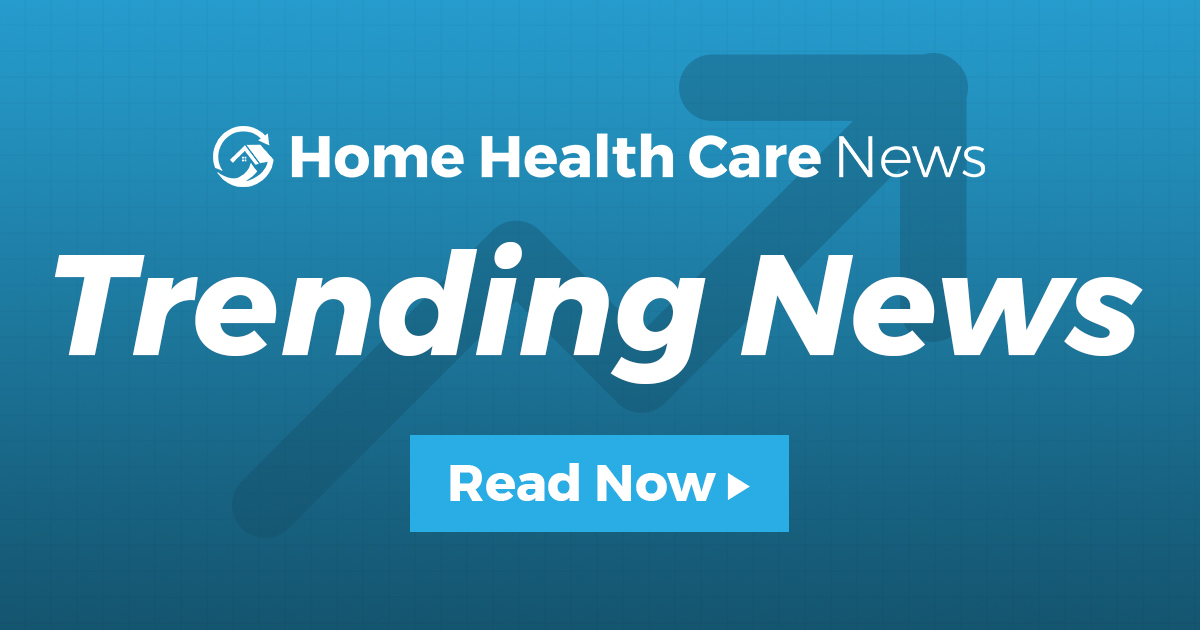
When it comes to interoperability, 74% of referral sources say they would send more referrals to post-acute care providers — including home-based care agencies — that offer greater electronic data access.
In general, referral sources are more likely to switch to a home-based care provider that meets their standards for interoperability. That’s according to a new survey from market analysis firm Porter Research and MatrixCare, a provider of long-term post-acute care technology solutions.
The survey garnered responses on interoperability from 700 respondents, including 100 health systems and physician groups and 300 home-based care organizations.
Broadly, interoperability is the capability of different information systems to connect across organizations in order to exchange individual or population health data.
Home-based care providers have long held a reputation for being archaic when it comes to their interoperability efforts — relying on outdated processes such as fax machines and phone calls.
“To a certain extent, some post acute care agencies don’t know that these capabilities exist and are real today,” Nick Knowlton, chair of the CommonWell Health Alliance and vice president of strategic initiatives at ResMed, told Home Health Care News. “Therefore, they lean on phone and fax as their primary communication mechanisms. Some agencies don’t even understand the capabilities of the [electronic health record] systems they are using.”
CommonWell Health Alliance is a not-for-profit trade association that is focused on improving health care data exchange. Meanwhile, ResMed is a health care solutions organization and the parent company of MatrixCare.
In recent years, agencies have seemingly responded to the needs of referral sources and have made strides in regards to their abilities to receive electronic data.
In fact, 95% of providers say they believe interoperability is crucial, compared to 34% in the previous year. Plus, 85% of providers claim they are able to accept admission, discharge and transfer feeds, with 72% reporting they accept clinical information in some format.
This is a major turnaround from the previous year. In 2019, only 34% of providers were able to receive these types of data.
Despite providers placing a greater emphasis on the importance of effectively processing
electronic referrals, agencies still haven’t gone far enough. Many providers still only meet “basic maturity” interoperability standards.
Meeting basic maturity standards means “the ability to receive patient demographic
data and clinical information, such as diagnosis codes and allergies, electronically,” MatrixCare wrote in the report.
Knowlton noted that this is not enough information to help a care provider treat a patient, understand their complex needs or claim reimbursement for working with them.
“What you have is some providers who are starting their interoperability journey, but they’re doing so at a very rudimentary level,” he said. “High-performing and mature interoperability involves a lot more than just exchanging the basics.”
In order to reach high-performing mature interoperability, providers need to be able to receive physician orders, patient forms and visit notes, medication information and patient status updates.
Additionally, providers should be able to connect with national networks, such as CommonWell Health Alliance and Carequality. Providers that are considered high-performing and mature are able to support FHIR-based interfaces and meet federal guidelines.
Knowlton also pointed out that PDGM’s compression of the revenue cycle means providers need to be able to obtain important patient information faster.
The major takeaway from these findings is that, as referral sources grow more demanding, providers that don’t prioritize meeting these could lose business.
“Either agencies begin to take advantage of these opportunities to connect, or other groups that they compete with are going to get there first,” Knowlton said.
"care" - Google News
March 08, 2021 at 12:25AM
https://ift.tt/3rqZQ6o
74% of Referral Sources Prefer Home-Based Care Providers That Meet Interoperability Standards - Home Health Care News
"care" - Google News
https://ift.tt/2N6arSB
Shoes Man Tutorial
Pos News Update
Meme Update
Korean Entertainment News
Japan News Update
Bagikan Berita Ini














0 Response to "74% of Referral Sources Prefer Home-Based Care Providers That Meet Interoperability Standards - Home Health Care News"
Post a Comment